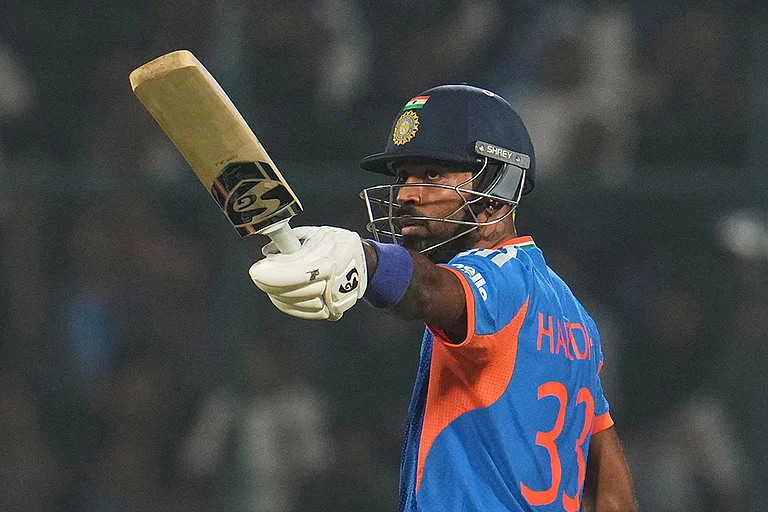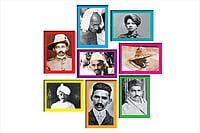Sure, all of us, for all of our lives, may have inhabited the Kali Yuga. But things, even in recent memory, haven’t always been quite like they are today. Remember the name Francis Fukuyama from only 30 years ago? He became famous for making claims that sound like the exact opposite of what we experience all around us now:
What we may be witnessing is not just the end of the Cold War, or the passing of a particular period of post-war history, but the end of history as such: that is, the end-point of mankind’s ideological evolution and the universalisation of Western liberal democracy as the final form of human government.
He called this the ‘end of history’ not in any doomsday sense, but precisely the opposite. History has always been about conflict, not only material conflict like war, but ideological conflict—the battle of ideas. But since, according to Fukuyama, the last major ideological battle had been won (that is, liberal democracy vanquished communism), there’s not going to be any more ‘history’. The rest of human time would simply be every nation slowly but inevitably becoming a peaceful and prosperous liberal democracy.
Fukuyama captured the glowing and gloating optimism that spread throughout the Western world in the wake of the fall of the Berlin Wall. It was assumed that with the triumph of the ideals of liberal democracy, the future would usher in wealth-enhancing, quality-of-life advancing, capitalism, democracy, peace and universal rights.
As Fukuyama so enthusiastically put it:
Good news has come. From Latin America to Eastern Europe, from the Soviet Union to the Middle-East and Asia, strong governments have been failing over the last two decades. And while they have not given way in all cases to stable liberal democracies, liberal democracy remains the only coherent political aspiration that spans different regions and cultures around the globe. In addition, liberal principles in economics—the ‘free market’—have spread, and have succeeded in producing unprecedented levels of material prosperity.
Starting around September 11, 2001, that ‘good news’ became bad news, quickly. Far from peace and prosperity, a culture of crisis ensued. It began in the United States, but over the next decade it spread to the majority of Western countries, and eventually caught us and our media in its grip too: first, a terrorism and security crisis, but soon added on top of that a financial crisis, fiscal cliffs, debt crisis, crisis of confidence in political leadership, both structurally (in the sense of dissatisfaction with the electoral processes) as well as materially(corporate influence, wall-street and banking criminality in the US and corruption and cronyism in India). The US was afflicted by peculiar crises of its own, such as the crisis of its exploding poverty figures, or the crisis of a gun culture, while it along with the rest of the world was starting to suffer the consequences of a crisis of sustainability and environmental crisis.
ALSO READ: Song Sung Blue: The End As A New Beginning
Writing in 2012, the philosopher and cultural critic Slavoj Žižek captured the first decade of the 20th century with apocalyptic imagery:
The global capitalist system is approaching an apocalyptic zero-point. Its ‘four riders of the Apocalypse’ are comprised by the ecological crisis, the consequences of the biogenetic revolution, imbalances within the system itself (problems with intellectual property; forthcoming struggles over raw materials, food and water), and the explosive growth of social divisions and exclusions.
Žižek borrowed the biblical idea of the end of the world being initiated by the appearance of four horsemen (symbolising conquest, war, famine, and death). For him, in the most extreme polar opposite of Fukuyama’s view from just 20 years before, we were living in the end times. These four horsemen inaugurating our demise were imminent environmental catastrophe, biotechnological revolutions and human genetic enhancements sure to spin way out of our control, civilisational and basic class, caste and tribal struggles, all certain to escalate wildly in the scenario of ever-decreasing natural resources, dirty water, infected foods, polluted public spheres, pandemics and plagues.
In parallel to Žižek’s writings, in the last couple of decades we witnessed perceptible shifts in regnant political ideologies (massive rightward and authoritarian populist movements) as well as more widespread changes in basic thought patterns visible through media, literature, and the popular arts. For example, there was a proliferation of apocalyptic film, fiction, and media-propagated end-of-the-world hysteria, ranging from classical Nostradamus themes, to newly hyped Mayan prophecies. It was as though the popular cultural imagination had determined that we had indeed entered upon the end times.
In the early morning of December 21, 2012, I had stopped into a Starbucks in New York City on my way to an academic conference. As he was handing me my coffee, the barista wryly said, ‘Enjoy your Apocalypse’. This was meant to substitute the Americanism, ‘enjoy your day’, because this day was unlike the average day: it was the day that hundreds of millions of people, relying upon widely-reported predictions from the Mayan calendar, actually believed that the world would end.
ALSO READ: Meowdi: A Short Story by Perumal Murugan

9/11 Cleanup of WTC disaster area in NYC. (Photograph by Getty Images)
Of course, prophetic doom and apocalyptic scenarios have long been sub-culturally present. As I mentioned at the start, we are living in the Kali Yuga. And indeed, prophetic doom has been central to the formation of numerous important American religions, such as Quakers, Seventh Day Adventists, and many more. But the secularisation, popularisation, and universalisation of the apocalyptic message that we have seen over the last couple of decades seem to make these times rather distinctive.
So how did we get from Fukuyama to Žižek, from the optimistic ‘end of history’ to the horrific end of the world?
ALSO READ: Gods, Bots And The New World Order
It is crucial to understand that Žižek’s dystopian inversion of Fukuyama’s utopian denouement of world history is not a simple negation or dismissal of Fukuyama. These positions actually share a fundamental similarity. Instead of world history and global political systems coming to rest in ideological stasis through the eventual universalisation of the pristine model of liberal capitalist democracies, the world comes to its utter destruction by the detritus, the underbelly, of this very model. That is, the inherent contradictions of all actually-existing liberal capitalist democracies devour Fukuyama’s idyllic representation of this system. In reality, what we get with the universalisation of liberal democracy is overproduction, environmental destruction, excess, violence, consumerism, waste, degradation of resources, productive ingenuity leading to self-destructive technologies, systemic plutocratic corruption, and so on.

Drought Man rests on parched bed of Varuna river in Phoolpur, near Prayagraj, UP. (Photograph by Getty Images)
Upon the heels of the four horsemen came the plague—in perfect accord with the doomsday script. We’ve had pestilence aplenty, and let’s not forget the swarms of locusts that had been darkening the skies and devouring crops in India and all across the globe in 2020. It’s probably even raining frogs somewhere. My guess would be Australia. Seems like the place that would happen.
ALSO READ: The Good Earth: Resilient And Resourceful
The pandemic has inaugurated a new sense of doom and gloom. And it has wrought disaster. Just as with the destruction that the environmental crisis has increasingly brought home to us, the impact of the pandemic has hit the vulnerable and marginalised the hardest. About the former, the philosopher Kanchana Mahadevan wrote:
On the Asian continent, our vulnerability to climate change has become starkly apparent in the increasing cyclones, flash floods, landslides and droughts — all of which overturn lives and livelihoods, and are exacerbated by high population density. Masses of poor and vulnerable communities experience the brutal consequences of climate change without any of the gains offered by the consumerist commodities of the carbon economy, nor did they trigger the frenetic commercial, commodified, and carbonised activities of mastering nature.
Just so with the pandemic. Covid has had devastating ‘objective’ consequences; that is, it has changed, and continues to change, the world. But I don’t think we grasp what is really fundamentally significant about our situation today if we lump the pandemic in with the rest of the apocalyptic scenario that the last couple of decades have ushered in. This is because what we see now are acute ‘subjective’ changes, compounding upon all of the objective ones. That is, it is not exactly ‘the end of the world as we know it’, so much as it is now an era of the end of the human person as we know her.
Think for a moment of the climate crisis. This is planetary. But in addition to the apocalypse evolving ‘out there’, Covid has catalysed one that is happening ‘in here’, within us. This personal apocalypse is riding in on four different horsemen. First is the screen, the virtual, the meta—as in metaverse. It is supplanting personal contact, where we see, smell, touch the other. Social intercourse is digitising. Residing in the metaverse may have always been the end logic of the smartphone, but it took Covid to disclose this destiny. Huge corporations like Facebook are banking on this future.

One of the first things one may think of when hearing the name ‘Facebook’ (now called ‘Meta’), is surveillance. There was a time when, seeking to guard our privacy, we used to protest the presence of cameras in public spaces. Now with our Zoom and Google-meet lives, we place ourselves on camera for hours daily. The second horse rides in: the consummate apotheosis of the surveillance regime, where we are monitored 24/7. Both government and big tech now know not only where we are, but where we are going. Not only what we own, but what we plan to acquire. They accumulate what we say and thus in aggregate know what we think, and constantly devise new and more intrusive means to manipulate this, us, to want something else, to do something else, tweaking the meaning of human freedom, changing the nature of the human subject. Before Covid, our data would be monitored, bought and sold. Today, we are the data.
If the second horseman brings in a change of freedom, the third one brings such a change to dignity. The nature of work and labour, long a source for our feeling of worth, our dignity, has been undergoing disruption. But now more rapidly than ever, AI, robotics, and other innovative technology is increasingly producing redundancies for human employment. It is not only unemployment that is increasing, it is unemployability. Thus many Western countries have begun introducing direct payments to citizens, as talk of universal basic income (UBI) enters common vocabulary. UBI is free money from the government (funded not by taxation but by central banks increasing the money supply), to subsidise a subsistence life for the unemployable masses. At the same time, those wishing to remain employable would need to merge themselves with this technology—enhancements of various kinds, whether on the body (cyborg suits, smart glasses) or in it (chips in the brain). This is the phenomenon that philosophers have called becoming ‘post-human’. The RBI is currently in the process of developing its own digital currency, not only due to the Indian government’s fear of cryptocurrencies and desire to ban Bitcoin and other altcoins, but because CBDCs (Central Bank digital currencies) can be sent directly from the government to individuals — such as for UBI. The money can be given and it can be taken away; it is centrally monitored and controlled. CBDCs are not just money. They are surveillance disguised as money. And with them, strategies of behavioural economics can be deployed by the government; Pavlovian alterations of our behaviour through the penalty or reward of cash deposits.
The fourth horseman brings epistemic collapse, a scenario where we do not know who to trust or what to believe, where we cannot rely as we once did upon public information because we cannot know if it is real or has been tampered with, if the news is reliable or fake news. You’ve heard the expression ‘post-truth’. Many are saying that we now live in a post-truth world. But to live in a post-truth environment is not just something ‘out there’. It affects your own brain, your own thoughts, your ability to acquire knowledge and even your understanding of what knowledge is. This is epistemic breakdown, akin perhaps to living in a dreamworld—or the metaverse?
ALSO READ: Covid Nightmare: Time Of The Living Dead
With these new four horsemen riding in, along with the global catastrophe we’ve already been facing, we witness a kind of catastrophe of the very idea of the person herself. We have perennially thought of ourselves as free (with privacy rights), dignified (through labour and work), loving (with interpersonal social and physical contact), and seeking truth and knowledge. All of these are morphing fast. This is the apocalypse now—it’s not just planetary crisis but the destruction of the human person too.
But we ought to close on an optimistic note. Every writer knows it’s the done thing to end a gloomy essay with some hope. Given the apocalyptic threats that we face today, however, both without and within, I have not yet discerned what that silver lining might be. In the meantime, enjoy your apocalypse.
(This appeared in the print edition as "Horsemen Cometh")
(Views expressed are personal)
ALSO READ
Aakash Singh Rathore is a philosopher and author

























